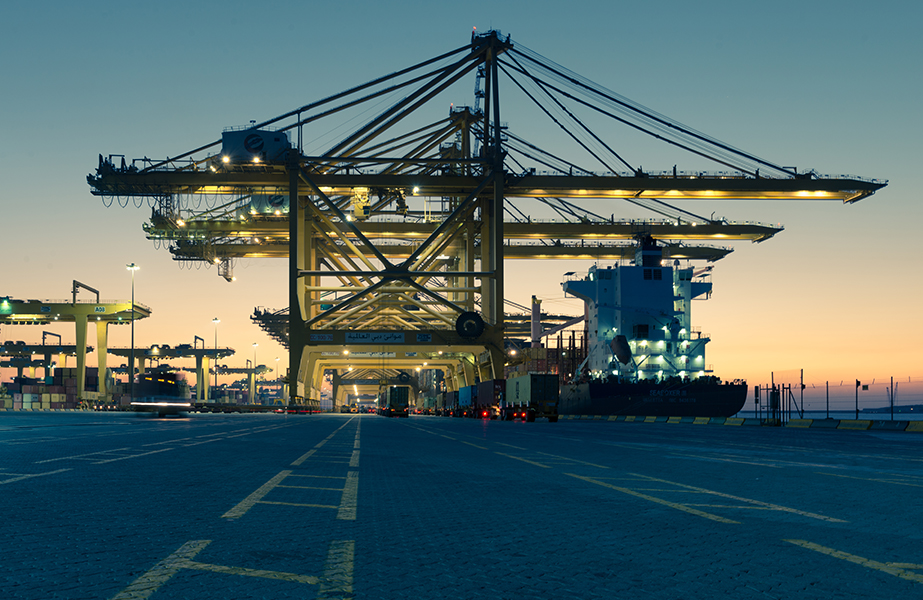For two decades, the African Growth and Opportunity Act (AGOA) has been a meaningful component of South Africa’s export and competitiveness strategy.
It has enabled duty-free access to the world’s largest consumer market, supported container traffic, and enabled agricultural products such as citrus, nuts, wine, and fruit juice to reach U.S. shelves at preferential tariffs.
The benefits are real, but so are the dynamics now reshaping them.
A newly introduced U.S. Senate bill, the AGOA Extension and Bilateral Engagement Act of 2025, proposes a two-year extension of AGOA until 2027, but simultaneously compels a full review of South Africa’s bilateral relationship with the United States.
Unlike past eligibility reviews that focused on trade or human-rights criteria, this one introduces a political and geopolitical filter.
The bill states, verbatim, that:
“The foreign policy actions of the African National Congress have long ceased to reflect its stated stance of nonalignment, and now directly favor the People’s Republic of China, the Russian Federation, and Hamas, a known proxy of Iran, and thereby undermine United States national security and foreign policy interests.”
This language is unusual as it targets not the state, but the African National Congress as a political actor, despite it not being a total majority party anymore. It suggests that eligibility could hinge not only on government behaviour, but on perceived political alignment.
This signals a shift: AGOA is no longer solely a trade preference, it is becoming a platform through which Washington communicates strategic boundaries.
The agribusiness sector, one of the largest AGOA beneficiaries, may be approaching the matter with caution rather than panic.
Agricultural economist Wandile Sihlobo, one of the leading voices in the business, emphasises that South Africa’s engagement with the U.S. market remains meaningful, but conditional:
“The U.S. remains an important market for our agricultural exports, accounting for approximately 4% of South Africa’s total agricultural exports, valued at U.S.$13.7 billion in 2024.”
He also notes the significance of ongoing negotiations “a great deal hinges on whether South Africa succeeds in securing favourable trade terms with the U.S.”
Neither statement foresees collapse. Rather, they reflect that the outcome depends on diplomatic posture, not inevitability.
American lawmakers are increasingly framing AGOA through the lens of global influence rather than market access.
Senator John Kennedy, who introduced the bill, states, “China is using Africa to expand its influence at America’s expense.
We need to rethink our relationships in the region while strengthening trade with African countries that share our values. This bill makes sure AGOA works for America’s interests, not against them.”
Whether this is a threat or recalibration is a question for the ages, especially given the recent fiasco that the U.S. created in terms of its non-attendance at the G20.
The U.S. is signalling that trade preferences are no longer neutral instruments, but conditional on perceived alignment.
If South Africa were excluded from AGOA, a scenario not yet determined, the consequences would not be a shutdown of U.S. access.
Rather, tariffs would revert to Most Favoured Nation levels, which may reduce price competitiveness.
Exporters would face:
None of these constitute existential threats, but they do raise the cost of participating in the U.S. market, a market where Chile and Peru already enjoy tariff advantages.
The current situation is best described not as crisis, but as a hinge moment. The U.S. has opened a door for reconsideration, not yet closed one. The bill creates conditions under which South Africa’s AGOA eligibility could be questioned, it does not declare the outcome.
Diplomacy, clarity of foreign-policy positioning, and responsiveness to U.S. concerns can preserve access.
Ignoring these dynamics introduces some degree of risk, especially for businesses whose margins rely on predictable tariff structures.
The freight and logistics sector should interpret this moment as:
If the U.S. remains a 4% market for agrifood exports today, its importance lies not in volume but in strategic diversification value, losing optionality in one corridor increases dependency elsewhere.
And dependency in trade is always priced.
The narrative here is not doom but one of conditional continuity. South Africa is being asked to explain its place within AGOA.
This can be seen as a negotiation, and with any negotiation, there is leverage, and Washington has just placed its leverage on the table.





